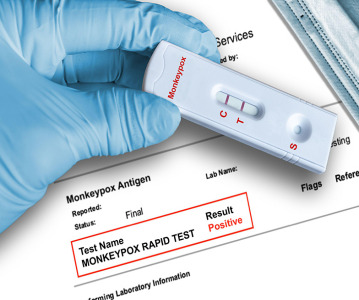Amgen Presents New Data Supporting First-Line Use of Vectibix in Combination With FOLFOX In Patients With Wild-Type RAS Metastatic Colorectal Cancer

Amgen has announced new data from the Phase II PEAK and Phase III PRIME studies that support the first-line use of Vectibix (panitumumab) in combination with FOLFOX, an oxaliplatin-based chemotherapy regimen, in patients with wild-type RAS (absence of exons 2, 3, or 4 KRAS or NRAS mutations) metastatic colorectal cancer (mCRC). The data was presented during a poster session at the 2015 American Society of Clinical Oncology (ASCO) Gastrointestinal Cancers Symposium taking place in San Francisco from 15–17 January.
In an exploratory analysis from the PEAK study (abstract #660), treatment with Vectibix compared to bevacizumab (Avastin) resulted in a significantly higher proportion of patients with earlier tumour shrinkage at week eight (64% vs. 45%, respectively; 95% CI, p=0.0232), and among responding patients, a significantly longer duration of response (11.4 vs. 8.5 months, respectively; 95% CI, p=0.0142) and greater depth of response (65% vs. 46%, respectively; p=0.0007). Overall response rates (ORR) appeared to be similar between Vectibix and bevacizumab. This is consistent with observed overall survival (OS) and progression-free survival (PFS) rates, and with data previously reported. The safety profile of Vectibix was consistent with previously reported studies.
"These analyses help deepen our understanding of how Vectibix works when added to a standard first-line chemotherapy for the treatment of wild-type RAS metastatic colorectal cancer," said Sean E. Harper, executive vice president of R&D at Amgen. "Our Vectibix clinical trial program continues to yield new insights regarding biomarkers and drug sequencing."
While the primary analysis from PEAK showed similar ORR between the Vectibix- and bevacizumab-based regimens, this exploratory analysis demonstrates that Vectibix produces early, sustained anti-tumor activity, which may in part explain the OS and PFS benefits seen with Vectibix versus bevacizumab in this trial.
A separate analysis from the Phase III PRIME study (abstract #537), demonstrated that there were no significant differences in quality of life among patients treated with Vectibix plus FOLFOX versus FOLFOX alone despite the incidence of adverse events associated with each treatment regimen. The quality of life analysis included a scale that assessed mobility, self-care, usual activities, pain/discomfort and anxiety/depression.
Related News
-
News CPHI Frankfurt 2022: Innovator Interview – DSM Biomedical
At CPHI Frankfurt we spoke to Anne-Cecile Bayne, Global Science & Innovation Lead Pharma and Medical Nutrition, and Marc Hendriks, Vice President Strategy & Business Development, on their expertise in nitrosamines and business strategy at DSM Biomedica... -
News New WHO health emergency guidelines expect full transparency from Big Pharma
The WHO are proposing a new set of pandemic guidelines to set out how future global health crises should be handled. -
News Magic mushrooms could be used to treat mental health conditions
A compound found in magic mushrooms, psilocybin, could be used to treat mental health conditions and help patients suffering with severe depression, as shown by the results of the largest study of its kind to date. -
News UK-based partnership to launch DETERMINE study into rare cancer research
UK-based CRO Quanticate is set to partner with Cancer Research UK for the launch of the DETERMINE study focused on testing a range of existing and approved drugs and therapies on rare cancers. -
News FDA approves Thermo Fisher blood tests for wheat and sesame allergies
Both tests have been approved by the US regulator for in vitro diagnostic use -
News QIAGEN launches world’s first syndromic test for monkeypox
The test can distinguish between monkeypox and other diseases that cause similar symptoms. -
News Monkeypox Update: Vaccine shortage, sewage surveillance and global testing
As concern over the monkeypox outbreak continues to rise, we take a look at major developments from the first week of August. -
News CPHI Podcast Series: The importance of novel excipients for innovative drug development
The latest episode in the CPHI Podcast Series dives into the world of novel excipients and explores their importance for innovative drug development.
Position your company at the heart of the global Pharma industry with a CPHI Online membership
-
Your products and solutions visible to thousands of visitors within the largest Pharma marketplace
-
Generate high-quality, engaged leads for your business, all year round
-
Promote your business as the industry’s thought-leader by hosting your reports, brochures and videos within your profile
-
Your company’s profile boosted at all participating CPHI events
-
An easy-to-use platform with a detailed dashboard showing your leads and performance


.png)




